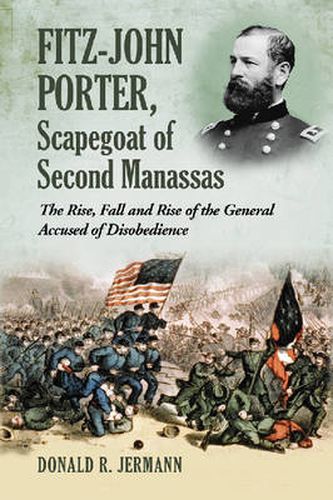Readings Newsletter
Become a Readings Member to make your shopping experience even easier.
Sign in or sign up for free!
You’re not far away from qualifying for FREE standard shipping within Australia
You’ve qualified for FREE standard shipping within Australia
The cart is loading…






This title is printed to order. This book may have been self-published. If so, we cannot guarantee the quality of the content. In the main most books will have gone through the editing process however some may not. We therefore suggest that you be aware of this before ordering this book. If in doubt check either the author or publisher’s details as we are unable to accept any returns unless they are faulty. Please contact us if you have any questions.
One of the darkest days in United States history since Valley Forge was August 30, 1862. On this date the Confederate army inflicted a smashing defeat to the United States army at Manassas, on the outskirts of Washington. To many, including the president and press, it appeared that Washington was all but lost.The defeat was all the more galling because it was inflicted by a numerically inferior and inadequately equipped confederate force. Someone, it was assumed, had to be responsible. Union Army commander Major General John Pope came forward and blamed the loss on young, handsome, charismatic and popular Major General Fitz-John Porter. He charged Porter with disobedience of orders and shameful conduct before the enemy. But was Porter really guilty or was it he who saved the country from an even greater disaster? This book examines the question of Porter’s guilt or innocence, examining the trial and its aftereffects from several perspectives. It also examines the larger question: If Porter was innocent, then who was to blame?
$9.00 standard shipping within Australia
FREE standard shipping within Australia for orders over $100.00
Express & International shipping calculated at checkout
This title is printed to order. This book may have been self-published. If so, we cannot guarantee the quality of the content. In the main most books will have gone through the editing process however some may not. We therefore suggest that you be aware of this before ordering this book. If in doubt check either the author or publisher’s details as we are unable to accept any returns unless they are faulty. Please contact us if you have any questions.
One of the darkest days in United States history since Valley Forge was August 30, 1862. On this date the Confederate army inflicted a smashing defeat to the United States army at Manassas, on the outskirts of Washington. To many, including the president and press, it appeared that Washington was all but lost.The defeat was all the more galling because it was inflicted by a numerically inferior and inadequately equipped confederate force. Someone, it was assumed, had to be responsible. Union Army commander Major General John Pope came forward and blamed the loss on young, handsome, charismatic and popular Major General Fitz-John Porter. He charged Porter with disobedience of orders and shameful conduct before the enemy. But was Porter really guilty or was it he who saved the country from an even greater disaster? This book examines the question of Porter’s guilt or innocence, examining the trial and its aftereffects from several perspectives. It also examines the larger question: If Porter was innocent, then who was to blame?